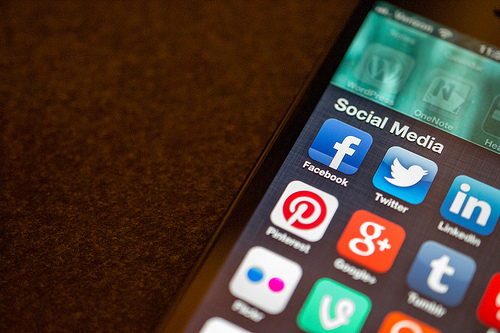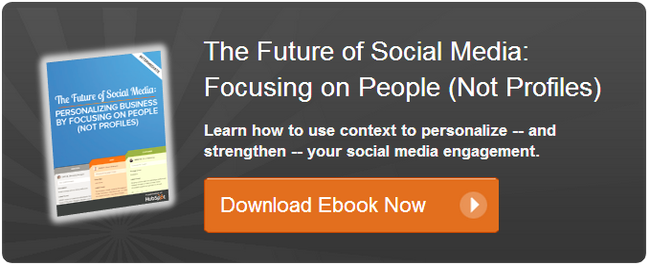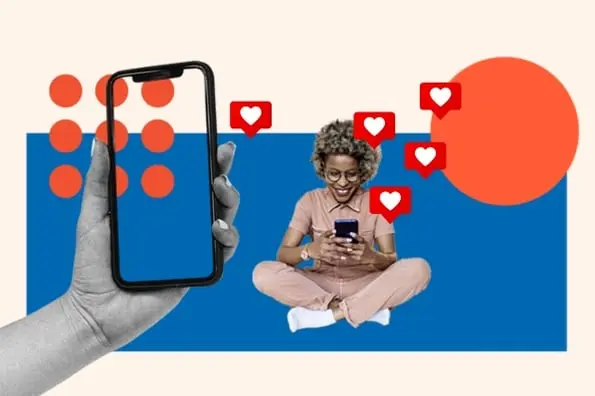 Before I freak you out: there is no action item required from this news.
Before I freak you out: there is no action item required from this news.
Okay, so, today Facebook rolled out "Verified" pages and profiles. I say there's no action item required because there's nothing you can do -- as an individual account holder, or for your brand -- to get your page or profile verified on Facebook.
But it's interesting news nonetheless. Here's why.
What Are Facebook Verified Pages and Profiles?
TechCrunch explains it nicely, actually. Verified pages and profiles are the little blue checkmarks you might see popping up on brand pages, profiles, and search results that "give high-profile accounts an added level of authenticity." They look like this:

You can't apply to have your own profile or page verified, but if you have a large enough following, Facebook may choose to verify you at some point. Right now, you'll only see verification marks for "a small group of prominent public figures (celebrities, journalists, government officials, popular brands, and businesses) with large audiences." Though this update is newsworthy and exciting, it's interesting to marketers like us for another reason.
Social Networks Are All Smooshing Together, One Feature at a Time
Twitter already has verified accounts. So does Pinterest. I remember, because I wrote about them eight months ago for Pinterest, and I see them every day when visiting accounts on Twitter.
They're all copying each other! Verified accounts. Analytics. Ad platforms. All the social networks are starting to look the same. These incremental little rollouts that on their own, really, aren't that interesting ... but they sure as sugar are if you're a marketer. The social networks are starting to look the same, and they're starting to make changes with the brand -- not the user -- in mind.
And it makes sense. They're businesses. They need to monetize. I don't begrudge them that -- not even a little bit -- neither as a user, nor as a marketer.
While we don't have to begrudge these social networks for slowly morphing into clones of each other, we do need to pay attention to how we react to this overarching shift in design and user experience on social media.
The Time for Social Media Disruption Is Now
I mean this in two ways, and the most obvious is disruption could be the emergence of a new social network. All these tweaks to platforms that cater to businesses instead of users are bound to leave a lot of users with sour tastes in their mouths. If you're looking to disrupt the social media scene with a new product that rethinks monetization and user experience, now's the time.
But we're not here to think of the hot new social network that replaces Facebook. (I think many of you would argue that's a fruitless endeavor, anyway.) The more interesting opportunity for disruption is the way marketers use social media to do their jobs. Social networks are all making it easier for us to reach our target audience -- it's no longer novel to have a Facebook page, to tweet blog posts, to pin products, or to share links to landing pages. Social media for lead generation, for audience reach, for engagement are all important, but most of our means to meet those ends are not novel. The time is now to disrupt how marketers "do" social media.
At this point, I kind of take back the whole "you don't have an action item" part of this post. I think we all have an action item. How can we all rethink our own approaches to social media marketing? I believe it starts by figuring out how we can adjust our activities to better solve for the person on the other end -- the social networks are taking care of solving for businesses just fine.
Image credit: Jason A. Howie




![22 Facebook Stats to Know in 2023 [+HubSpot Data]](https://www.hubspot.com/hubfs/Untitled%20design%20%288%29-1.jpg)
![How to Create a Facebook Group for Your Business [+ Why You Should]](https://www.hubspot.com/hubfs/Copy%20of%20Featured%20Image%20Template%20Backgrounds-Jun-30-2023-05-58-51-2746-PM.png)
![Facebook Insights: A Beginner's Guide [+ Step-by-Step Instructions]](https://www.hubspot.com/hubfs/Untitled%20design%20%2838%29.jpg)




